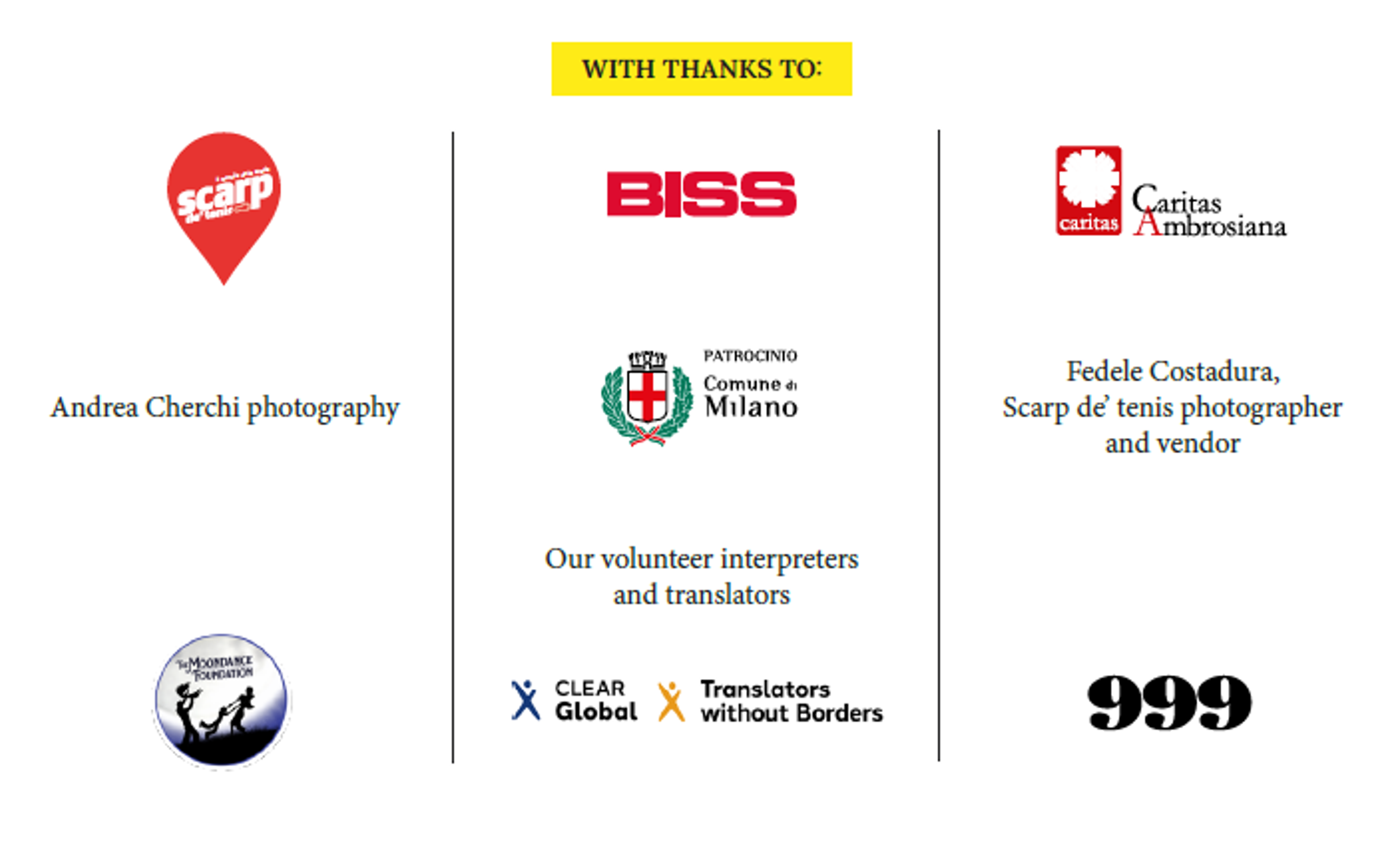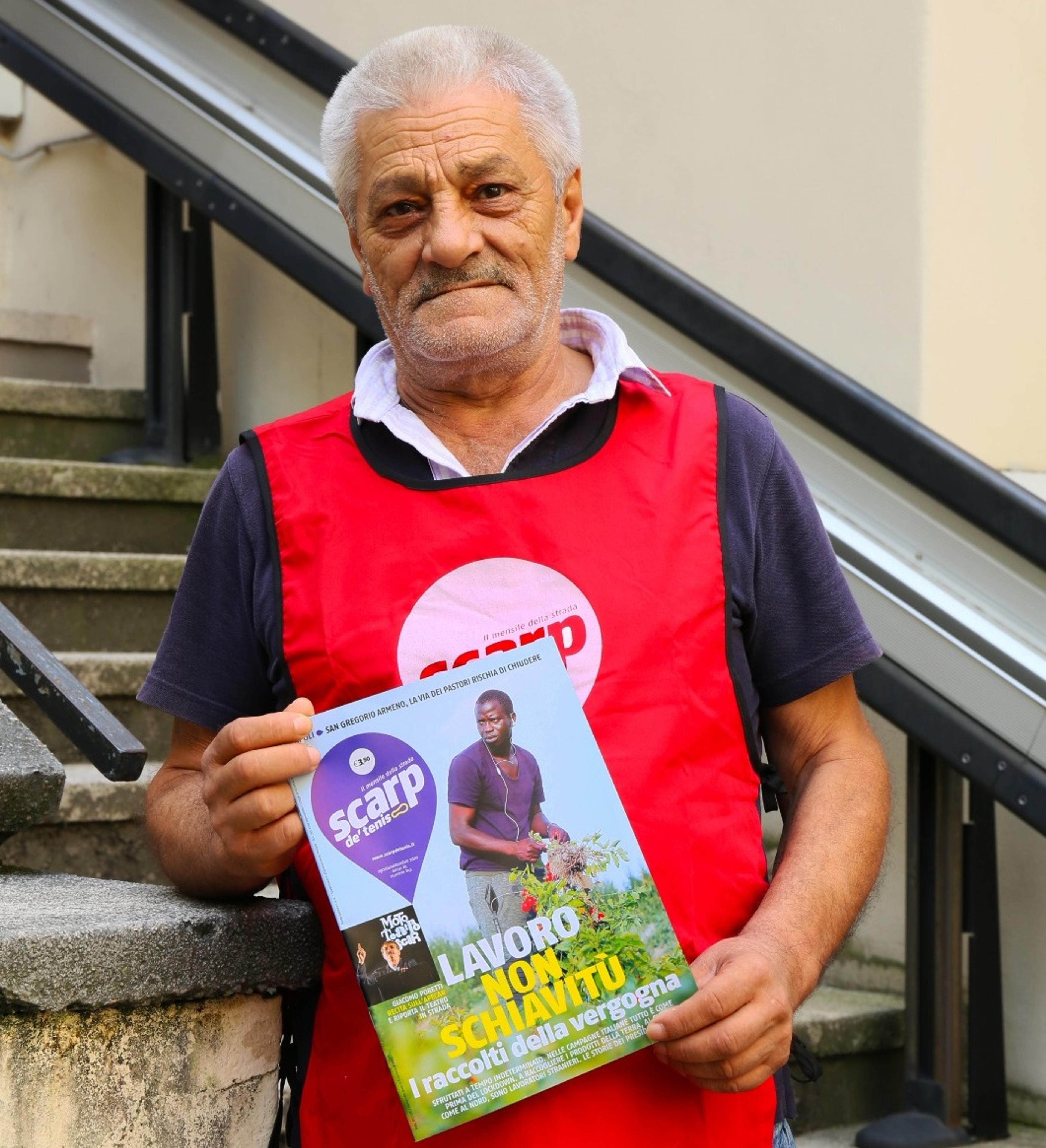Global Street Paper Summit
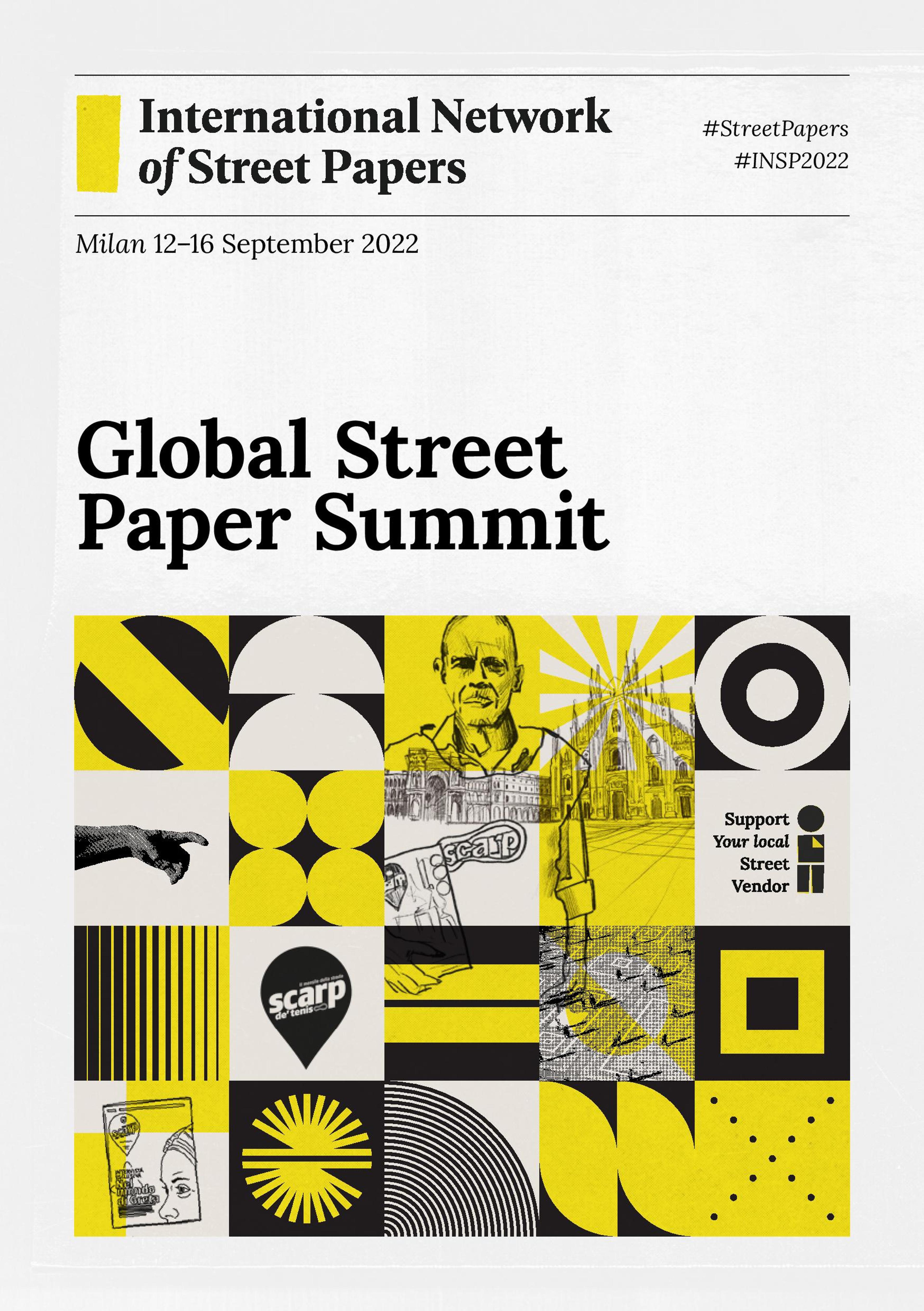
The Global Street Paper Summit is an annual gathering of street paper staff to discuss shared challenges, celebrate successes and think about the future of our global movement.
The latest conference took place in the Italian city of Milan in collaboration with the local street paper Scarp de' tenis, between Monday 12 and Friday 16 September.
The 2022 Summit was a particularly special one: it was the first opportunity for street papers to come together in person since before the COVID-19 pandemic, the previous Summit having been held in Hannover in 2019.
120 people attended the Milan event, representing 48 street papers from 24 different countries.
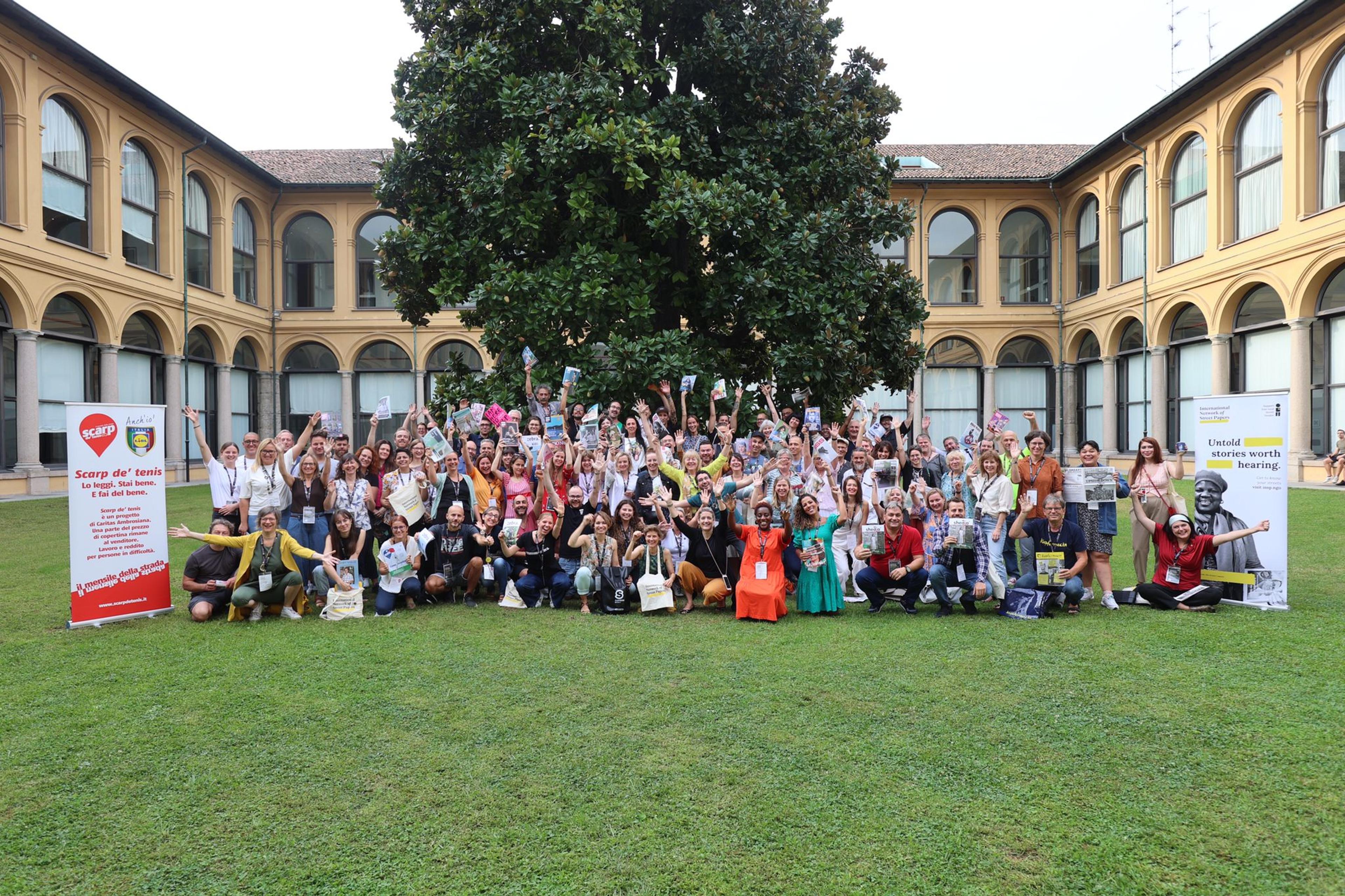
Street paper staff at the 2022 Global Street Paper Summit in Milan, Italy. Credit: Andrea Cherchi / INSP
Writing for the Summit programme, INSP's CEO Mike Findlay said: "I am delighted that we are going to be together in Milan for the first Global Street Paper Summit since before the Covid pandemic.
"Having only joined INSP in May 2022, I have already been impressed by the work that is underway, in particular the wrap-around support that street papers are providing vendors beyond just the transaction of providing and selling the papers: emotional and wellbeing support; practical support with finances and housing; and employment skills; to name just a few.
"Our street paper network has had to remain resilient over the last few challenging years, which is why our Summit is centred on the theme of resilience and reunion. INSP has entered a new phase."
In Milan, INSP laid on a programme that would allow street paper staff from across the world to learn from and enrich each other with the lessons they have learned in the intervening years since last meeting, discussing topics as varied as the refugee crisis and the media landscape, inquiring into regional collaboration using INSP's work in North America as a foundation, and taking part in workshops for a more hands on learning experience.
A session led by service designer Liat Rogel sought to help plot a way forward for street papers in an ever changing world. Rogel, who uses design thinking tools to create innovative strategies for sustainability, led delegates on an exercise to think about new ideas and ways to develop solutions for the many challenges and opportunities street papers experience. Participants worked to identify questions and answers to things like supporting vendors in a digital age, remaining relevant with limited resources, and how to think about supporting workers' mental health while also fulfilling the street paper mission and impact in the larger community.
Solutions ranged from publishing content online to reach a broader audience, in turn leading to more sales due to broader readership, to diversifying funding streams and earned income opportunities, to moving to a four day work week while hiring more employees. Delegates took away not only these potential solutions but also, more crucially, a new and effective way to think through their work.
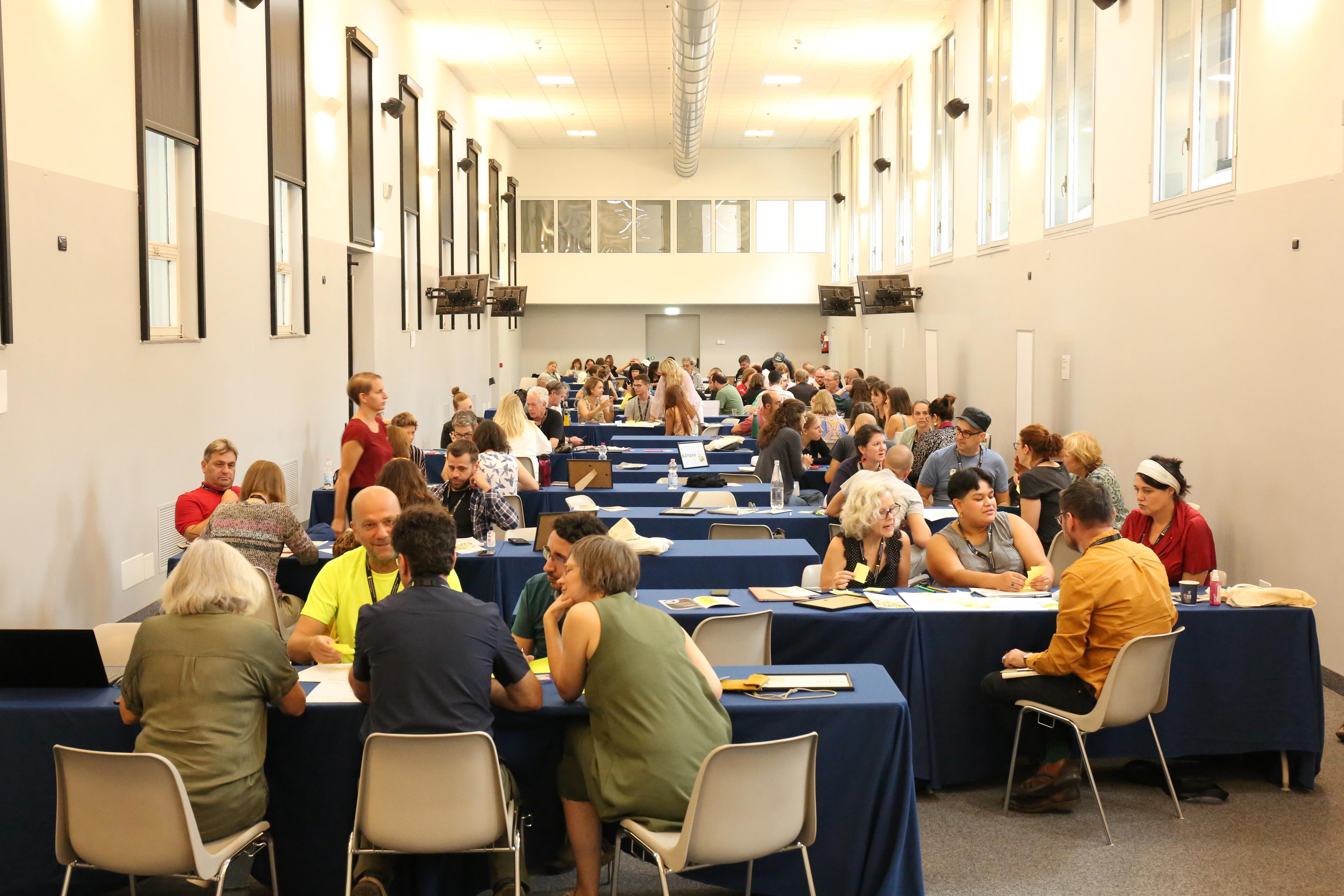
Street paper delegates at the 2022 Summit taking part in Liat Rogel's design thinking session. Credit: Fedele Costadura.
They also heard from keynote speakers. Mina Dennert, Swedish journalist, social media expert and founder of the activist group I Am Here International, talked about her work countering disinformation to defend human rights and freedom of speech.
With street papers working in an area that can stimulate strongly opposing opinions in an environment that has become more politically and socially fraught than ever, Dennert spoke to delegates about the opposing forces of censorship and allyship online.
"The absolute best way to communicate what we believe is not to temper our values, but to communicate what we actually believe - communicate openly and positively,” she said about online debate. "Never surrender your values and campaign in response to attacks. Stay secure that there are people who support what you are saying. Lean in."
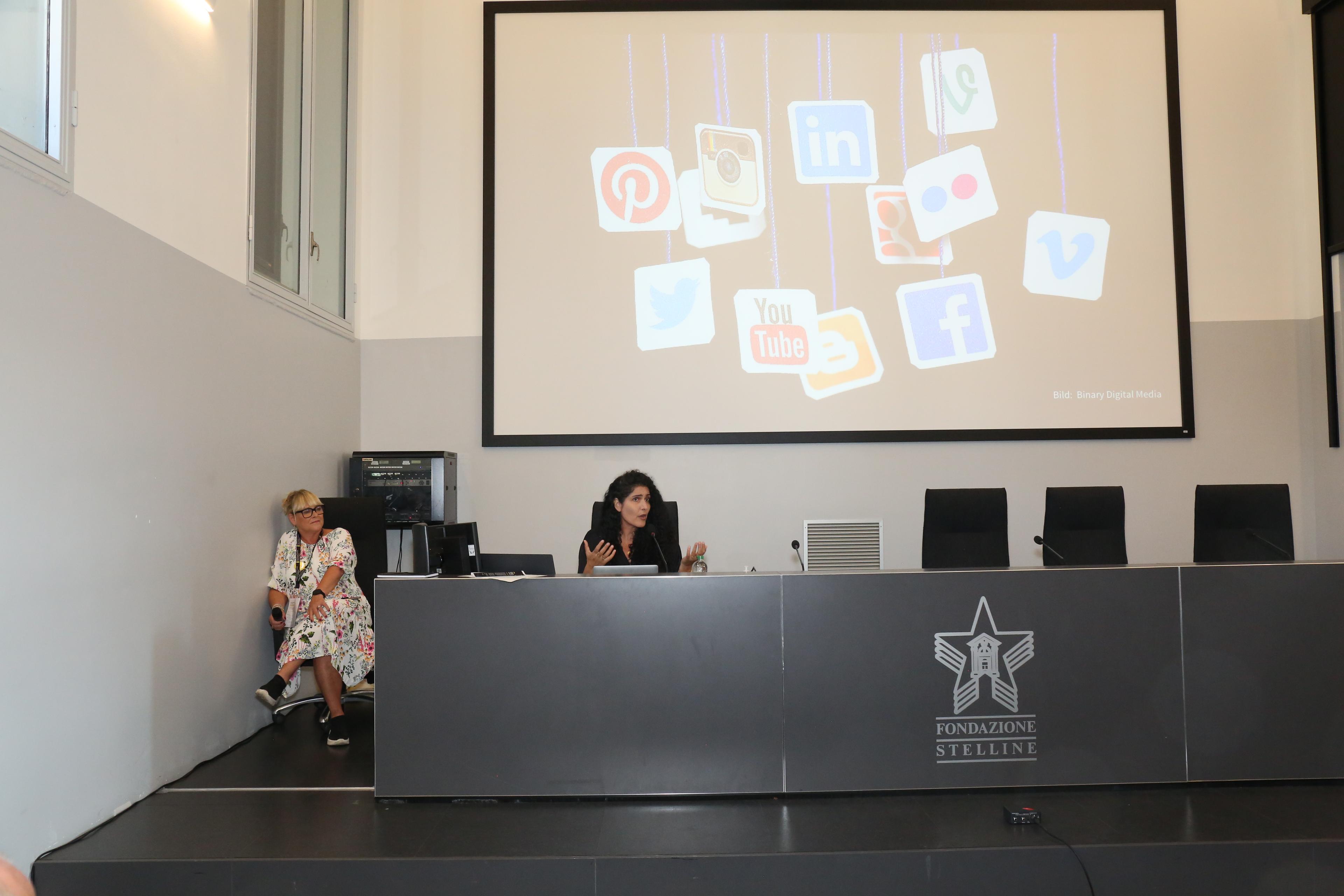
Mina Dennert addresses the audience at the 2022 Global Street Paper Summit. Credit: Fedele Costadura.
Even out of the pandemic and its lockdowns when street papers faced a precarious situation, they have remained duty-bound to serve communities who need them.
Many street papers around the world are increasingly working with refugee populations. In 2022, it’s estimated more than 100 million people around the world will be forcibly displaced from their homeland. On the second day of the Summit, street papers discussed - with input from representatives at the United Nations Refugee Agency - different ways to support one another and become more equitable in the work we do to support millions of people on the move across many countries.
Street papers are working to highlight the complexities and stories refugee communities face, while also providing displaced people with a dignified income though the sales of street paper publications.
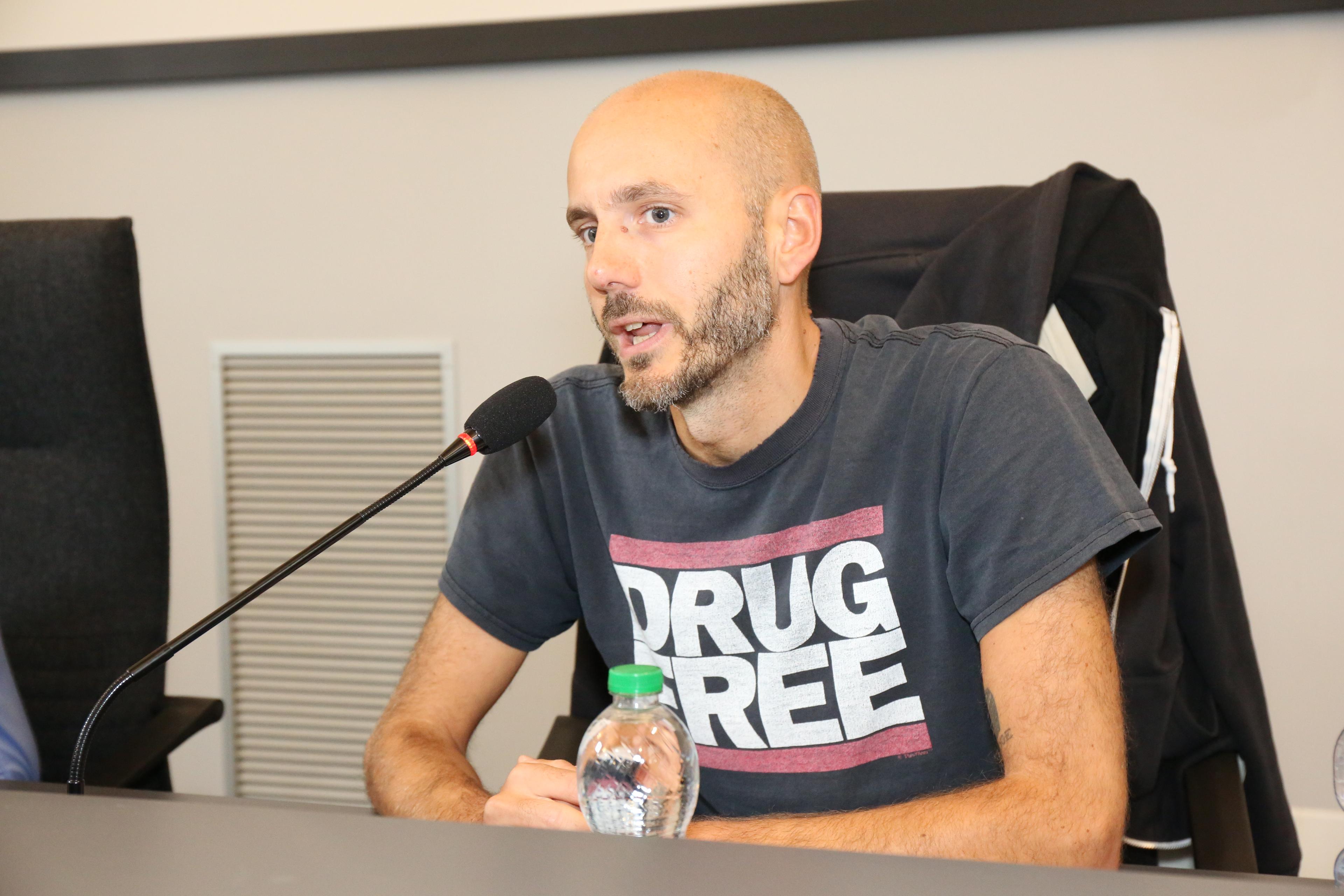
Alessio Giordano, of northern Italian street paper zebra., talks about his work assisting vendors who are also refugees. Credit: Fedele Costadura.
This practice of learning from each other - a fervent characteristic of the organistaions working in the street paper movement - continued when some inspiring insights and innovations from the last few years were shared.
All of the projects mentioned were extensions of the main street paper product of each organisation, emphasising the heights street papers and their staff go to provide fulfilling and impactful ideas for the people they serve.
Oklahoma City's Curbside Chronicle delivered a presentation on its wildly successful Curbside Flowers, a florist and flower arranging service creatively driven by Curbside vendors, teaching them a new skill and providing them with a healthy sustainable income.
And Greek street paper Shedia, in its forward-thinking press for accessibility in all things, showcased its Braille edition for the visually impaired - the first of its kind in the street paper network - while discussing ways this fledgling idea could be adapted and developed.
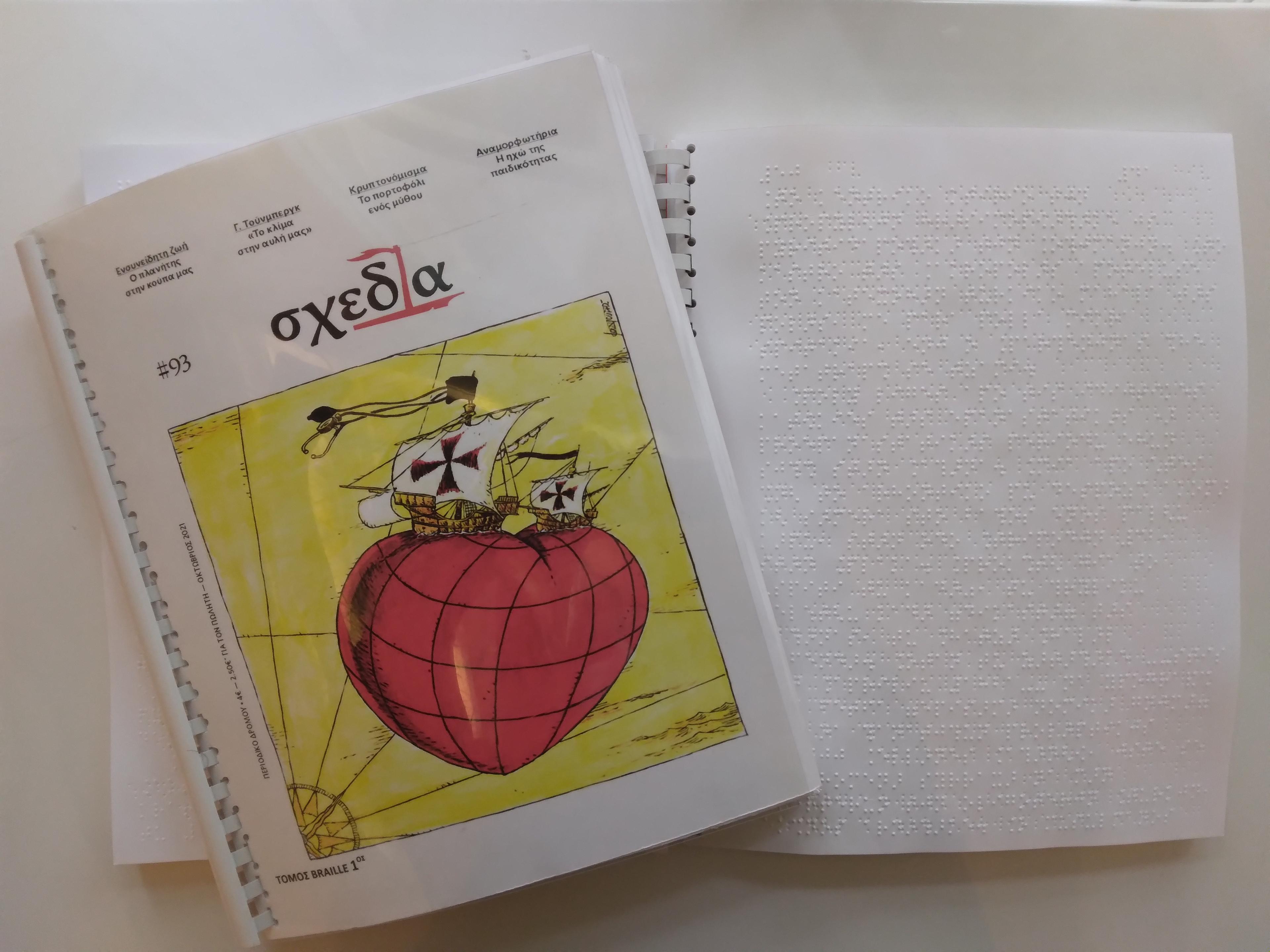
The Braille version of Greek street paper Shedia.
Revista Tracos, based in Brasilia, has a video webseries - 'Tracos da Gente' - where professional actors play out the personal stories of some of its vendors - which Tracos call 'Spokespeople of Culture', due to their proximity to and knowledge of the city's cultural schedule - often leading to heartbreakingly emotional results.
And Megaphone, based in Vancouver, Canada, showed how trauma-sensitive journalism and stories of lived experience can show the scale of environmental collapse through its Climate Disaster Project involving vendors who have experienced extreme heat while vulnerable telling their personal story.
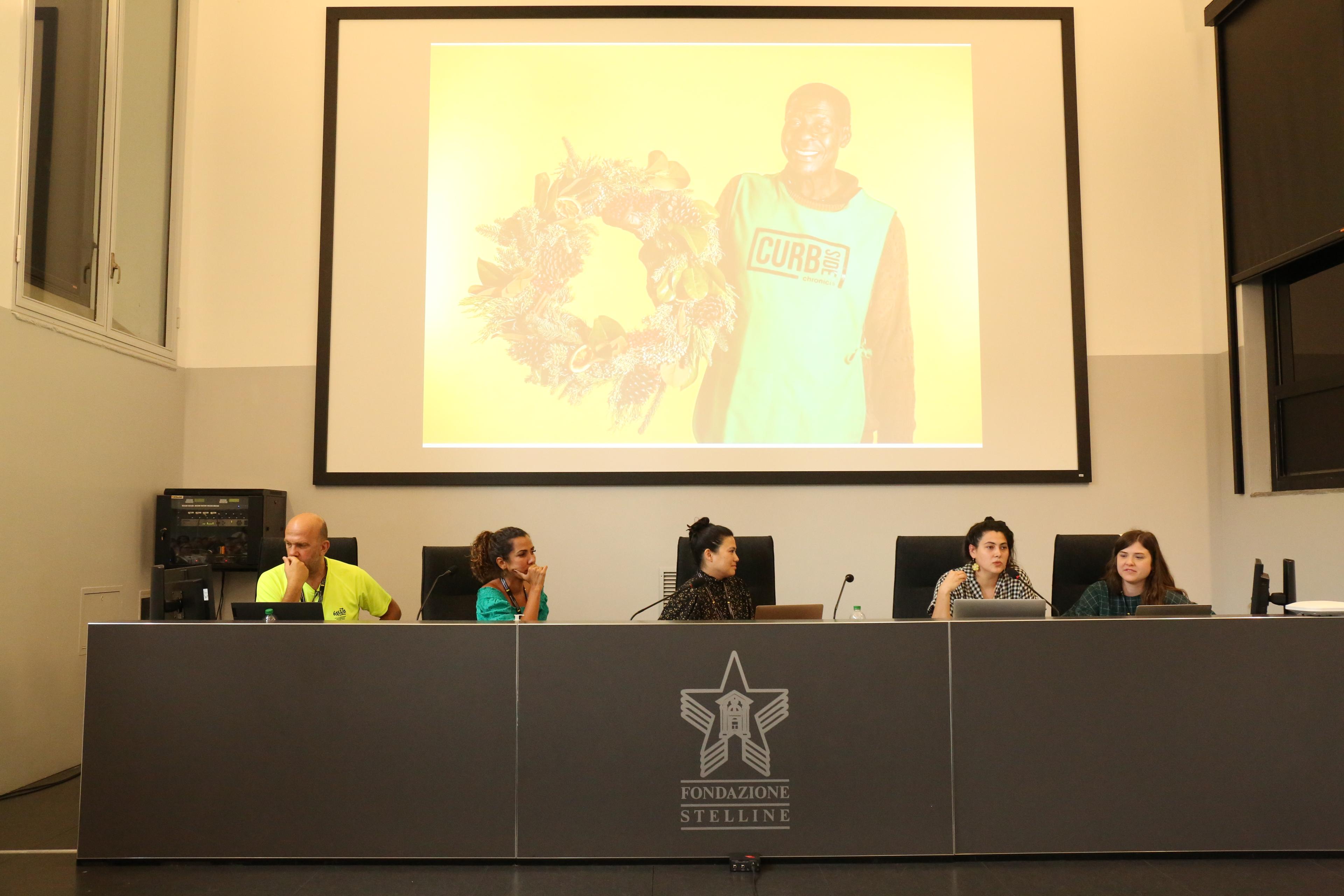
The team at The Curbside Chronicle talk about their project Curbside Flowers. Credit: Fedele Costadura.
An opportunity to make cultural visits and socialise together is another key part of a street paper Summit. An evening trip to eat at the Refettorio Ambrosiano, a community kitchen for people experiencing hunger, homelessness and poverty in the Greco district of Milan, encapsulated this.
Set up by Michelin star chef Massimo Bottura (who spoke to INSP prior to the Summit) and his non-profit Food for Soul. The Refettorio's chefs use only ingredients salvaged from food that would otherwise be wasted. The dining space is clean, aesthetically pleasing, filled with meaningful art, and welcoming and communal, meaning those who attend can engage in the social part of eating as well as the nourishment part. As one of the people leading the visit said, the ethos of the Refettorio is: “Through beauty, people feel dignity.” These values chimes with that of street papers: ensuring society's most marginalised aren't excluded from cultural spaces and products of quality, and understanding that engaging in experiences that are good for your well-being and culturally enriching are as important as the economic side of things.
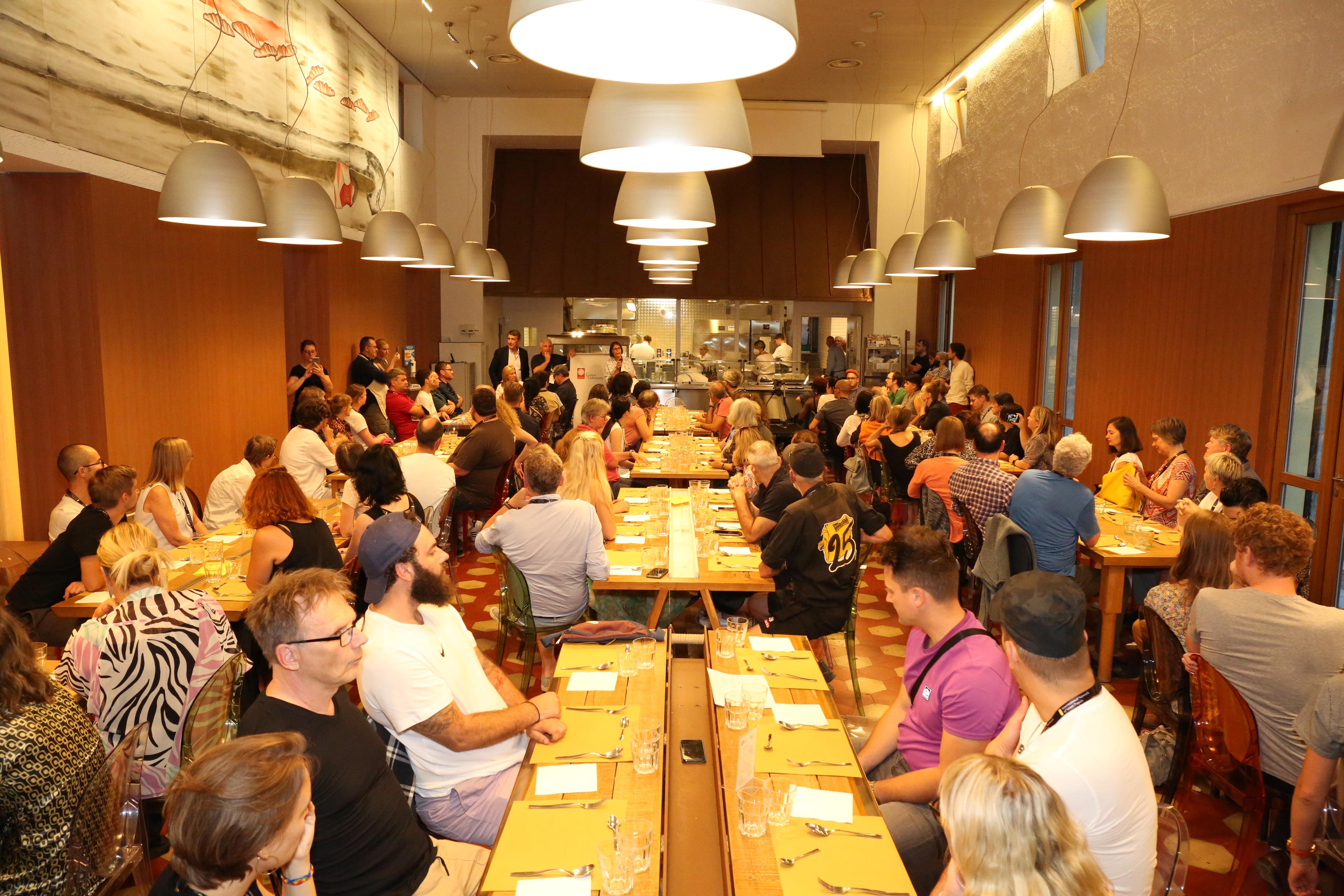
INSP Summit delegates sit in the Refettorio Ambrosiano in Milan. Credit: Fedele Costadura.
Finally, a celebration of the resilience of street papers took place at the INSP Awards at the Milan Museum of Science and Technology. Success in areas of journalism, campaigning, support, design and photography were recognised. You can read more about the Awards here.
The next Global Street Paper Summit is set to take place in Portland in 2024 in collaboration with the local street paper Street Roots. It will also mark INSP's 30th anniversary.
The Summit would not have been possible without the support of our main sponsors - Scarp de' tenis, Caritas Ambrosiana and BISS. An enormous thank you once again for their support.
